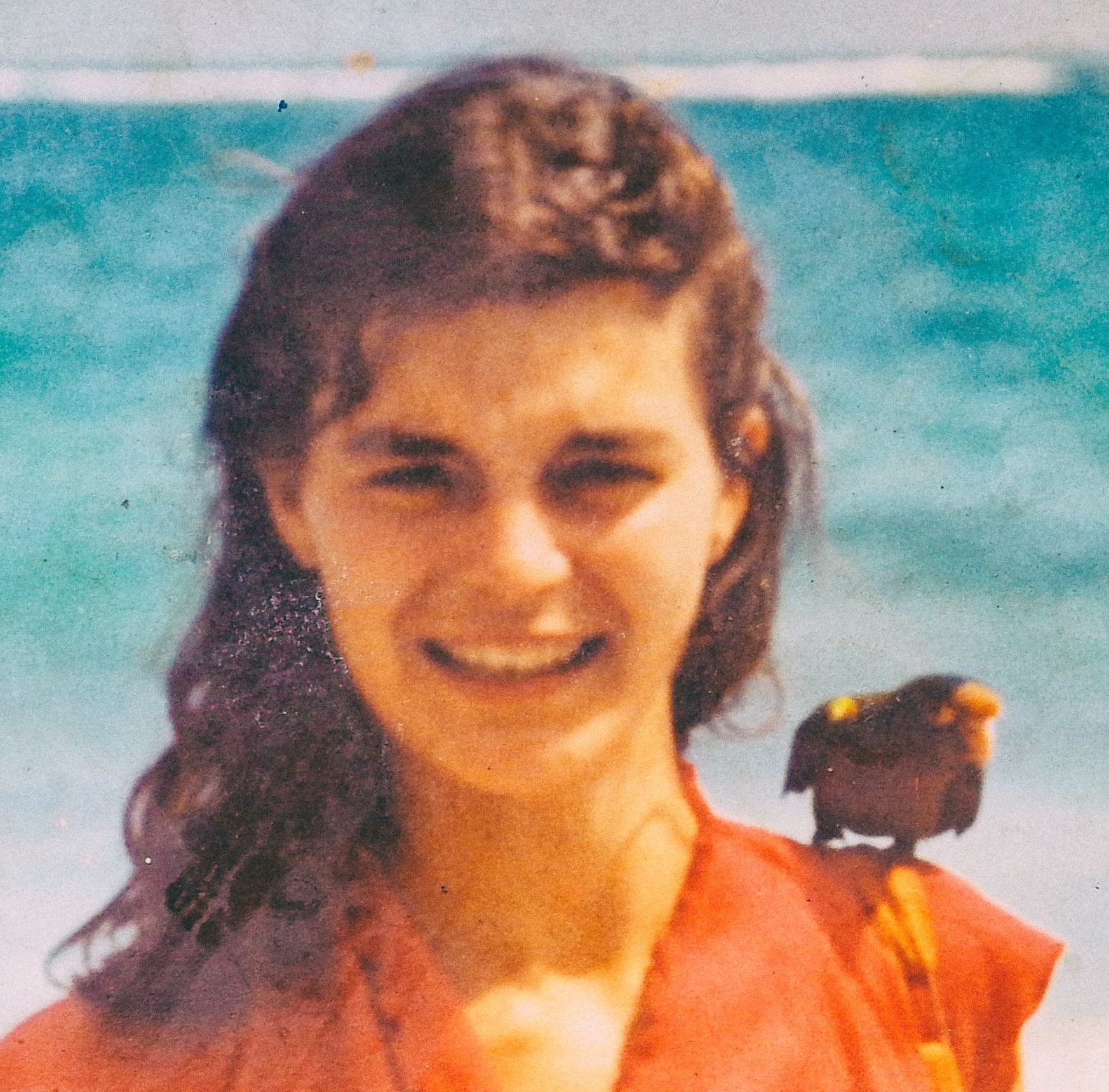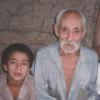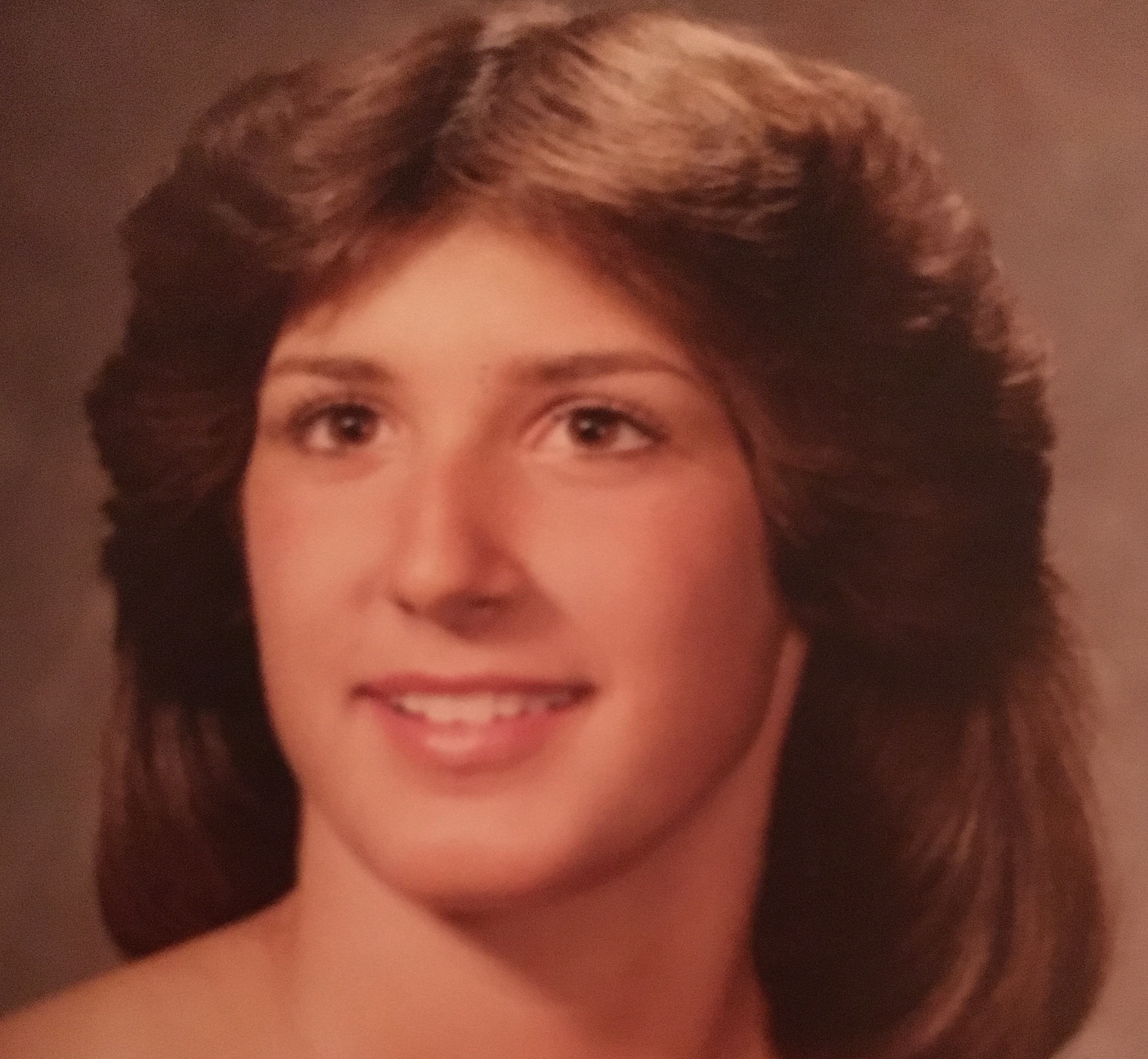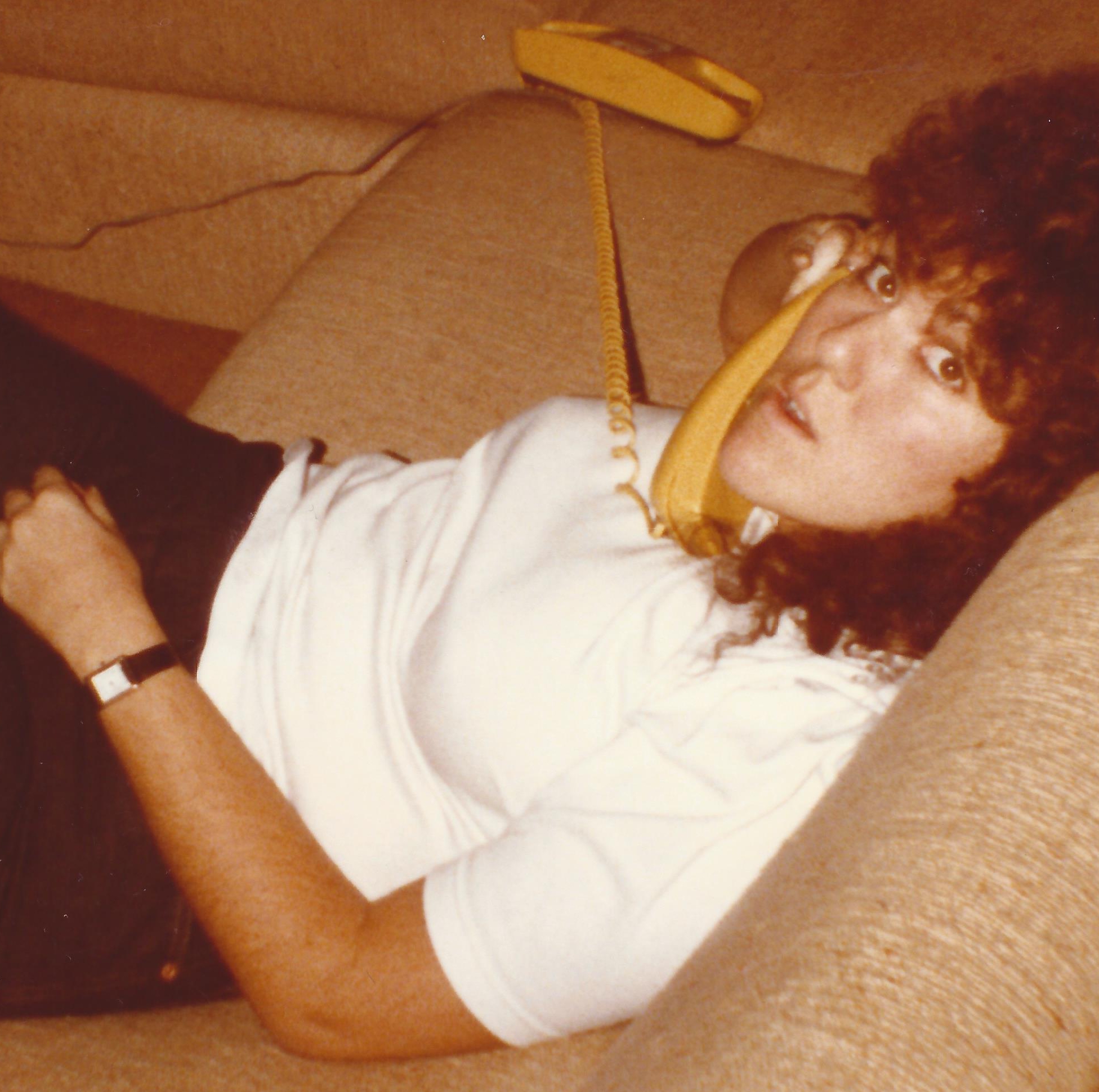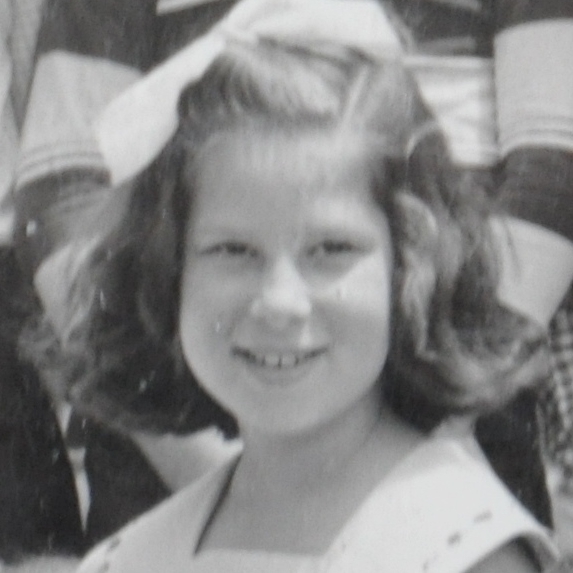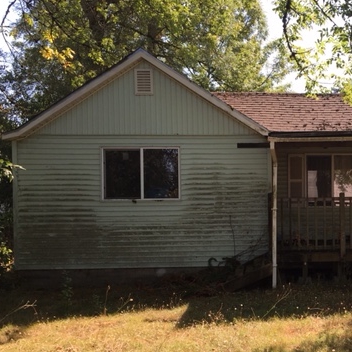I wrap my confident, motherly arms around Baby Joshua, his sweet baby face just inches from mine, my hand resting on his chest gently tapping to a beat neither of us can hear. I instinctively begin to sway back and forth in the tender, intimate way my body responds when I hold a young life. He shows his joy by letting out a giggle, soft, barely audible, his mouth a toothless masterpiece. I coo back and widen my eyes. He welcomes my attention, thrives on it even, if only for an hour a week.
With a trained eye, I quickly scan his face. There are no marks, no bruises, no unaccounted-for scratches. He has survived this past week unscathed. I look past his smell, the uncombed shock of black hair, the dirty formula stains that form a putrid crust at the base of his throat. He needs a bath and a fresh change of clean clothes.
Baby Joshua’s mama, Kelsey, is outside smoking her hand-rolled cigarette as she leans up against the gate of the dilapidated wood fence, its white paint peeling in most places, exposing gray wood, crooked and irregular as her teeth. The smoke from her cigarette hangs in the air, a translucent haze with no defined shape. A cough comes from deep within her lungs, the kind that greets her first thing in the morning and says goodnight to her with the last cigarette of the day. Kelsey says she needs the nicotine to calm herself down. She tells me I make her nervous, “comin’ into my home, and nosin’ around about how I care for my baby.”
Kelsey is twenty-two, though she looks much older. Years of drugs, alcohol, and traumatic relationships have aged her prematurely. She is stick-thin with a sallow complexion that, combined with her hair being dyed a garish color of blonde, gives her appearance a strange monochromatic effect.
Their home is a trailer that sits on a piece of land ten miles east of the city in a grove of old, majestic fir trees, not a neighbor in sight. It is filthy and dangerous and no place to raise a child. The two main windows of the trailer are gone, replaced with semi-see-through plastic, ill-fitted with jagged edges that have been nailed in place in a haphazard fashion. Piles of filthy discarded clothes and empty fast food wrappers lie on the floor, couches that have one deep, dark stain after another line the living room wall. Broken appliances take up space in her dining room. Rotting garbage and a cat-urine-soaked carpet can be smelled from ten feet outside her closed front door. I force myself not to gag or react to the stinging of my eyes when I first enter her home.
Each time I visit Kelsey, I leave explicit information with my husband as to where she lives, what time my appointment is, and the phone number to her child welfare caseworker. This breaks all confidentiality rules between a client and a social worker, but I have to watch out for myself; her home is too isolated, her friends too impulsive.
Kelsey tested positive for opiates when she gave birth to Baby Joshua two months ago in the local, county hospital. She repeatedly stuck to her story of taking just one sleeping pill the night before she went into labor, but experienced nurses knew the signs of a newborn’s painful withdrawal due to long term opioid use. No doubt the hospital social worker knew this as she observed Baby Joshua’s relentless high pitched screaming and stiff limbs jerking into the air as if to fight off an unseen menace, just as she knew that a phone call would have to be made to the state’s child welfare division.
Kelsey’s overburdened, altruistic caseworker called me a few days later to request I make weekly visits to her client’s home. It was agreed that if Kelsey submitted to random drug tests and allowed me regular access to check on his well-being she could keep Baby Joshua in her care. “I would like to see Joshua stay in the home,” the caseworker told me one day, in the fresh, eager voice of a person ready to change the world. I had my doubts. Looking over Kelsey’s case file, I read that she has already had two children removed from her care due to neglect. The prior caseworker noted that Kelsey had told her, “I’m just gonna keep havin’ babies until the state lets me keep one.”
Today’s visit isn’t going very well. Kelsey, tired and argumentative, follows me as I perform a check of each room in the house. In her bedroom a man and a woman are passed out on the floor, empty bottles of wine and Subway food wrappers by their side. Kelsey tells me they are “out of town guests.” The couple’s appearance is disheveled; their smell tells me they haven’t bathed for a few days. I will need to call her caseworker about the “guests,” but I give Kelsey the opportunity to make the phone call herself. This makes her angry as I knew it would.
“I’ll make the phone call, just not right now,” she snaps. Baby Joshua squirms in her arms, arching his back, uncomfortable in Kelsey’s stiff embrace. “By 3:00 this afternoon,” I counter, aware that the sound of my voice sounds especially harsh and demanding. Kelsey turns and stomps past me into the tiny, airless bathroom where Baby Joshua will have his bath.
The tub has been cleaned since the last time I was here. There is no longer a dark brown ring clinging to the cheap plastic sides. The thin layer of pink residue that had adhered itself to the bottom of the tub is gone as well. I applaud her efforts, hoping the acknowledgement might spur Kelsey on to clean other areas of her home. Instead, she grunts at me as she lays Baby Joshua onto his back in the two inches of warm water. He smiles and immediately starts kicking his legs, his tiny hands closed in tight fists, his blue eyes firmly fixed on his mama.
During Baby Joshua’s bath I notice that his diaper rash hasn’t gotten any better. I ask the same tired question:
“How often is his diaper changed?’”
I get the same answer; “I dunno, a lot.”
“Are you using the cream I gave you before you diaper him up?”
“Every time.”
Looking at the angry red blotches of raised skin on his little bottom, I know he is sitting in his own urine for extended periods of time. When she sits him up in the sink, I observe the start of a bald spot on the back of his head. I ask Kelsey how much time Baby Joshua spends on his back.
“Oh about an hour a day, I’d guess. Never more than that.” My jaw clenches in anger, as I hear her lies.
How stupid does she think I am?
Instead of repeating the importance of regular diaper changes or explaining how laying a baby on a dirty, food encrusted floor with no social interaction for long periods of time stunts his brain development, I seethe. What the fuck’s wrong with you that your son’s life is so insignificant?
I stop my useless, inner dialogue in its tracks, afraid of where it might take me. I cut the visit short; clearly, I will not make Baby Joshua’s life better today. I am enraged, but worse than that I am becoming resigned, slowly dying doing this work that everyone praises me for. Caseworkers love me because I know what to look out for, and I know when someone is bullshitting me. I get just how long to play the game before I bust their ass. I can talk trailer talk, spot a man preying on someone’s daughter, call a teen out for being high by a brief glance at their pupils. Caseworkers call me, hoping they can coax me into taking on their clients, using words they think I want to hear:
“You work so well with women who are survivors of domestic violence...I think you are a perfect fit for that new mother...I trust you to keep an eye on the father during his supervised visit with his daughter.”
The work has come at a personal price, and after many years of seeing former clients’ mug shots on the local news or getting a call from a caseworker who asks me to take on a client whose name was familiar from the past, I have begun to believe that my life’s work is insignificant and pointless.
I am tired of holding lifeless babies, their eyes hollow and vacant, shaken by an out of control parent who vehemently denies any such action on their part. I struggle with needy toddlers who I can’t get off my lap during a home visit because I give them the positive attention they crave. I feel defeated by the yelling behind the closed front door of my client’s apartment, having spent the past hour working with her on firm, but loving communication methods she can use with her four-year-old. I want to rage against the defiant mother who tells me that the four-year-old in front of me, with a 101-degree temperature and green snot coming out of his nose isn’t sick enough to go to urgent care.
Depression and anxiety soon led me to weekly visits with a counselor, but instead of rebuilding my sense of purpose, the sessions brought back powerful memories long stored away of a scared little girl. They brought back police at the front door, mama crying and daddy’s shadow in the hallway at night.
I head home from my visit with Baby Joshua, cancelling the last two visits of the day with the old excuse of a flat tire or a daughter’s sudden illness. With the car parked in my garage, I quickly undress, dropping the tainted clothes that smell like Kelsey’s trailer in a repulsive heap on the cement floor. I head straight for the bathroom where I turn on the shower as hot as I can handle, the punishing water hitting my body, my hair soaked and hanging. There is no attempt to push it away. I scrub my skin once, twice, three times in an effort to get the dirt and the pain and the sadness off of me.
As I scrub, I see a little girl, standing behind her mama as she clings to her back, her little arms around her mama’s waist. She is hiding from the bright blue spinning lights of the police car as it sits in front of her home. Her mama is angry, defiant, her cigarette smoke hangs in the air while the police officer questions her. She sees her daddy sitting on the front steps, his hands cuffed in front of him, his head hanging down towards the ground. “Is there a relative in the area who might take your daughter until things settle down here?” the policeman asks, his voice gruff, impatient.
I scrub and scrub until there are angry red lines that go up and down my arms. Tiny small spots rise to the surface, clear and bright against the alabaster likeness of my skin, red and painful as Baby Joshua’s diaper rash.
I see the little girl in the back seat of a police car, dark and musty smelling, taken to her sister’s apartment, clutching her teddy bear and feeling like maybe if she had behaved better this wouldn’t have happened.
I rinse and soap and rinse and soap, and I still see the grime, the filth, the misery on my skin defying me to continue my work, mocking my attempts to make a child’s life better.
I thought I had put you away for good, I whisper to the little girl, knowing the havoc she can wreak when she is awake. She is enraged, inconsolable. She screams out with a fury I had forgotten, her voice, a childlike version of my own. She demands my attention as if I owe her something.
After my shower and wrapped in my stark white bathrobe, I open a bottle of Pinot. Feeling like a failure unable to save the children, I need it to take off the edge off from another distressing day. A respectably sized bottle of only the highest quality, no cheap ass box wine for me. I pour it into the first glass I see and plop exhausted into my living room chair, thinking, “If you had a job like mine you would drink at three in the afternoon too.” It occurs to me, as I savor the first few swallows that I am justifying the afternoon drinking that has gone on for the past two weeks.
But I no longer care.
Suzanne is a Pacific Northwest writer who has worked as a social worker in rural areas of Oregon. Currently she is writing a book about her mother who ran away from home at fifteen, joined the circus, and married the elephant trainer. Suzanne has studied creative non-fiction at the Attic Institute in Portland, Oregon. Baby Joshua is her first published piece.

